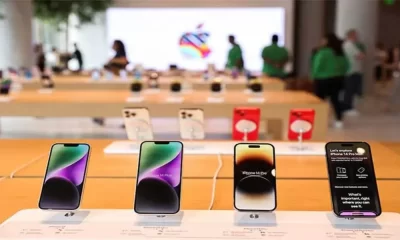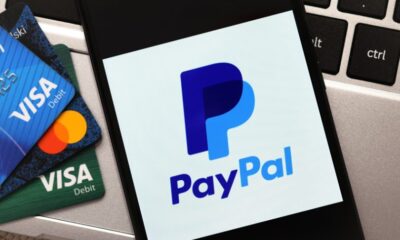Tech
Supreme Court Seems To Favor Tech Giants In Terror Case

WASHINGTON — The U.S. The Supreme Court appeared skeptical of a lawsuit to hold social media companies liable for a terrorist attack at a Turkish nightclub that killed 39 people on Wednesday.
During oral arguments at the Supreme Court, several justices emphasized that there was no evidence linking Twitter, Facebook, and Google to the 2017 attack on the Reina nightclub in Istanbul. According to the family of a man killed in the attack, the companies assisted in the growth of the Islamic State group, which claimed responsibility for the attack. A lower court allowed the lawsuit to proceed.
What the court does with Wednesday’s case and a related one heard the day before is critical, especially because the companies have been shielded from liability on the internet, allowing them to grow into global behemoths.
If the court prevents the lawsuit involving the Turkish attack from proceeding, it could avoid a major ruling on the companies’ legal immunity. That outcome would keep the current system in place, but it also leaves the door open for the justices to revisit the issue in a later case.

Justice Amy Coney Barrett was among the court members who suggested that the suit against the companies lacked the facts required under federal anti-terrorism law to hold platforms accountable.
Barrett suggested that a lawsuit against a company like Twitter would require more evidence, such as direct messages, comment threads, or other evidence that the platform was being used to coordinate activities for a terrorist attack rather than “general recruitment or radicalization.”
Justice Neil Gorsuch, who was present remotely for the second day in a row due to illness, said he was struggling with a lawyer’s argument for the family of Nawras Alassaf, who was killed in the nightclub attack. Gorsuch told lawyer Eric Schnapper that he was “struggling with how your complaint lines up with the three requirements of the statute,” which stated that the companies knowingly assisted someone in committing a terrorist act.
Tech Giants Angry Over The Court Case
The justices appeared more willing to accept the arguments of Seth Waxman, a Twitter, Facebook, and Google lawyer. During the two-and-a-half hours of arguments, Justice Sonia Sotomayor asked Waxman to assist her in sketching an opinion if the court ruled in favor of his clients. “Write it for me,” she requested.
“When a legitimate business provides services on a widely available basis… it’s not going to be liable under this statute even if it knows bad people use its services for bad things,” Justice Brett Kavanaugh said of Waxman’s argument.
Justice Samuel Alito, who appeared to agree with that idea, suggested that holding telephone companies liable for criminal activity committed by people using their phones would be absurd. What if the phone company “knows that a particular person is — has a criminal background and is probably engaging in criminal activity and is using the phone to communicate with other members of that person’s gang,” he speculated. Is that complicity in the crimes they commit?”
The case involves the Justice Against Sponsors of Terrorism Act, which allows Americans injured in a terrorist attack abroad to sue in federal court for monetary damages.
Twitter v. Taamneh, 21-1496, is expected to be decided by the end of June before the court adjourns for the summer.
SOURCE – (AP)








































